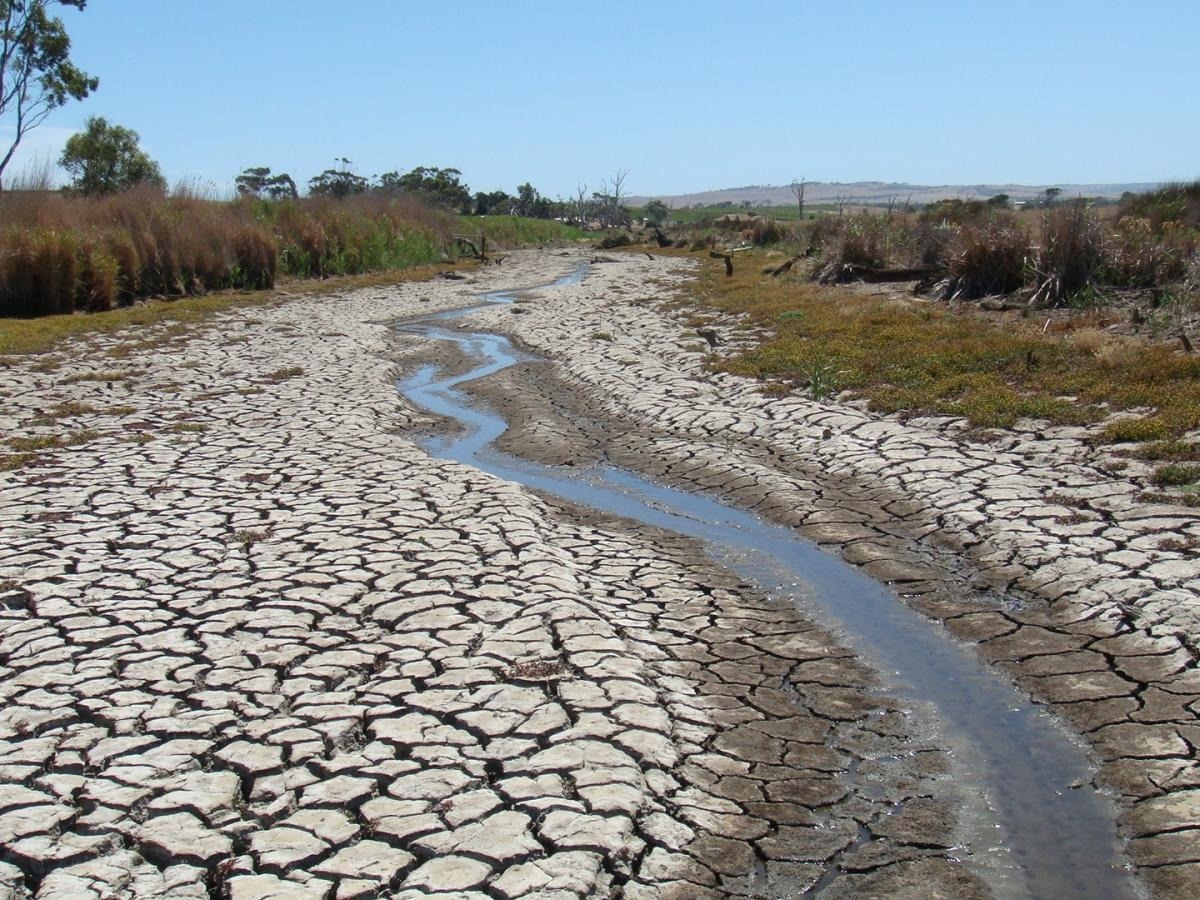An extensive review of nearly 1,000 studies investigating the impacts of climate change and extreme weather events on rivers worldwide has revealed an overall negative impact on the global water quality of these rivers.
 Finniss River in drought in 2009, where acid sulfate soils cracked and acidified. Image Credit: Associate Professor Mosley.
Finniss River in drought in 2009, where acid sulfate soils cracked and acidified. Image Credit: Associate Professor Mosley.
A global team of experts, spearheaded by Utrecht University in the Netherlands and including researchers from the University of Adelaide, carried out an extensive analysis of 965 studies conducted across all continents between 2000 and 2022.
The comprehensive review revealed that multi-decadal climate change has led to elevated water temperatures and heightened algae levels in 56% of the examined studies. This phenomenon has contributed in part to a widespread decline in dissolved oxygen levels within river water.
Additionally, the study uncovered that droughts and heatwaves have been responsible for increased salinity and high concentrations of pollutants, including pharmaceuticals.
The severe effects climate change is already having on water quality globally are very concerning. Previous climate change predictions flagged this, but unfortunately, we are now seeing these extreme events play out across the world. Rivers are intrinsically important ecosystems but also provide key water sources for drinking water and agriculture. Poor quality water can result in the river water being unsuitable for these uses.
Luke Mosley, Associate Professor, School of Biological Sciences, University of Adelaide
The research looked at data from Australia, including studies led by Professor Mosley during the Millennium Drought, between 2007 and 2020.
This period saw the River Murray and Lower Lakes facing record-low water levels and bad water quality, like high salt levels and increased acidity. There were also severe ecological problems, such as the fish die-off in the Lower Darling River in 2019.
Dr. Michelle van Vliet from Utrecht University, who led the study, hopes to gather more data on water quality from countries outside the Western world.
“Most water quality studies now focus on rivers and streams in North America and Europe. We need a better monitoring of water quality in Africa and Asia,” adds Dr van Vliet.
The research, which was published in Nature Reviews Earth and Environment, shows how climate change is causing serious problems worldwide. Professor Mosley is optimistic that the long-term perspective on these effects provided by the team’s work will inspire the creation of new methods for managing water resources.
Our findings stress the need to improve understanding of the complex hydroclimatic–geographic–human driver feedbacks and to develop technologies and water quality frameworks that support the design of robust water quality management strategies under increasing hydroclimatic extremes.
Luke Mosley, Associate Professor, School of Biological Sciences, University of Adelaide
Professor Mosley concludes, “It is hoped this research will spur increasing additional effort and collaboration globally to understand extreme water quality effects. Governments and other policymakers should take note of the findings and consider contingency plans and strategies to try to minimize water quality risks.”
Journal Reference:
van Vliet, M. T. H., et al. (2023). Global river water quality under climate change and hydroclimatic extremes. Nature Reviews Earth & Environment. doi.org/10.1038/s43017-023-00472-3.
Source: https://www.adelaide.edu.au